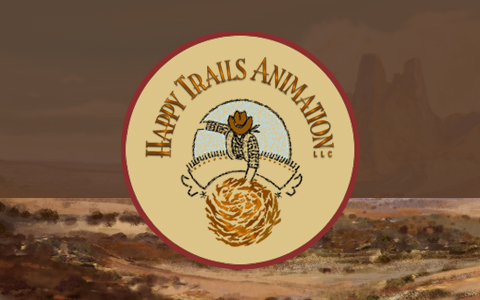Now that pretty much most of the world agrees on some form of “Global Warming” the green movement has made sustainable farming a household term. We now have cities turning Joni Mitchell’s Parking Lots into “Community Gardens.” Regardless of city or urban life, folks are joining the movement of sustainability. So here is the question — if folks can finally understand the power of sustainable farming why not make the leap to Sustainable Corporate Culture? There is a lot of talk about colors (orange, teal, the list goes on) but I think we need to implement a philosophy that is meant to work long-term. Just as putting duct tape on a broken pipe is only a temporary fix, todays’ companies need something more permanent like Sustainable Corporate Culture.
Sustainable agriculture is the act of farming based on an understanding of ecosystem services, the study of relationships between organisms and their environment. It has been defined as “an integrated system of plant and animal production practices having a site-specific application that will last over the long term”
So let’s apply that statement to the ecosystem developed within any business or corporation. Companies need to understand the relationships between their workforce and their environment, which can greatly affect the public brand. It seems like we are now living in a time where you need to be more than your GPA or having graduated from a special university, but rather skills in communication and/or real experience. No matter what department you are in the question you should be asking is: How can I make this place more productive or successful? To quote Margaret Mead:
“Never doubt that a small group of thoughtful, committed citizens can change the world; indeed, it’s the only thing that ever has.”
When we talk about the work environment we mean it to apply to all involved — upper and lower levels of the corporate structure. When you are at the bottom it is much easier to point the finger up at the management in their windowed rooms, and if you are in management it is easier to point down at the lack of productivity. Blame is no longer the answer or the way to show profits (or losses) to stock holders. A company now more than ever needs to understand the power of Sustainability. Remember we are all wishing for things to last long-term. This philosophy should come from all the departments within any company. This is less about defensive individuals but rather how can each individual keep the company working so that they all have a job. This is as true for Apple as it is for your local coffee shop.
Like sustainable farming, you need to understand your ecosystem. In regard to framing, that will be the terrain. In the end we are growing something. Whether it is seeds in the ground or the next Google gadget. Why is it that humans seem to look at life so literally? Everything in life can be learned and applied — from agriculture to corporate growth some things may vary but some lessons transfer. We just need to learn how to see and apply the lessons that are already out there. There is no magic pill for building a new corporate culture/strategy that will make any difference if the entire company can’t see why, how, and where. For many years the industry has looked at generations to point fingers. Yes, we all have specific generations that we were born into, and yes, there are some key traits within these gens. The fact that these traits exist means something — but this is not about pointing fingers at generations but rather the importance as to how to see an individuals’ strengths and place (plant) them in the proper position.
In a funny way we need to figure out how to recycle and compost our workforce. It is about creating strong nutrients that enable growth to take place. Again, this is not about retraining but about taking a new direction for how we interface with the workforce that already exists. This is more about putting the round peg in the round hole. Just like on the farm, recycling and composting is critical to the success of the crops, whether it is a seed or a new product line for Starbucks. How can you gain insight into an individual and understand who they are and how they think in real time.
Just like any ecosystem, in sustainable farming, how you mix and balance your underlying principles and interactions of organisms and the environment is important — this is also important within any corporation. While in farming we are talking about microbes and bugs fighting each other to form a safe environment for crops, we need to create that in the corporate setting as well. Think of these microbes and bugs as your workforce. Without them your crops die — with them you have something to take to market. In a past article I wrote about how the Enneagram is about personalities. How to read individuals from within your own workforce — is like figuring out which microbes or bugs they might be best suited to battle. Breaking down an individuals work ethic and personality will tell you a lot about where they need to be rather then what job they applied for. “X the Game” is just that kind of tool. We have developed this tool to work within the cultural environment of “Burning Man” and this has a lot of potential for the corporate environment. We all have experienced laughter, sorrow, success, defeat and many other human emotions. Although emotions bring us together, they also have the capacity to tear us apart.
So with this tool (X The Game) we have developed a new way to look into an individuals abilities . How it works is much like the “Rorschach Test”.. there are no right or wrong answers. It is more about how an individual relates to unpredictable images and how they connect the images to address specific given intentions. An intention is really just a goal or issue that is needed to be addressed. In Sustainable farming an intention might be to address the issues of deformed strawberries. Now farmers will plant a crop of alfalfa next to strawberries and let it grow beyond the strawberry season which in-turn draws the Lygus bug away from the strawberries and toward the alfalfa instead. Think of “X the Game” as that tool that can help an individual think outside the box and come up with the idea of using Alfalfa as a deterent.
How you play the Game determines what kind of environment you foster or corporation you have. It is most important to create a system that works symbiotically. You need to match your workforce with the right position. Where they are placed and what battles they need to preform can make all the difference. Know more about the ecosystem of your company through “X the Game”.
by Andy Collen of Happy Trails Animation
Global Warming http://environment.nationalgeographic.com/environment/global-warming/




